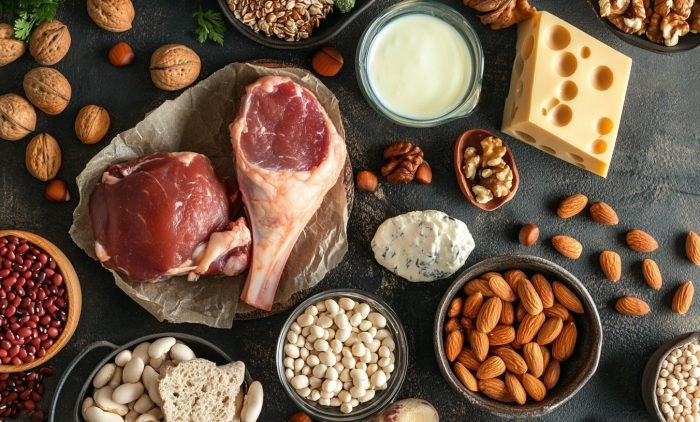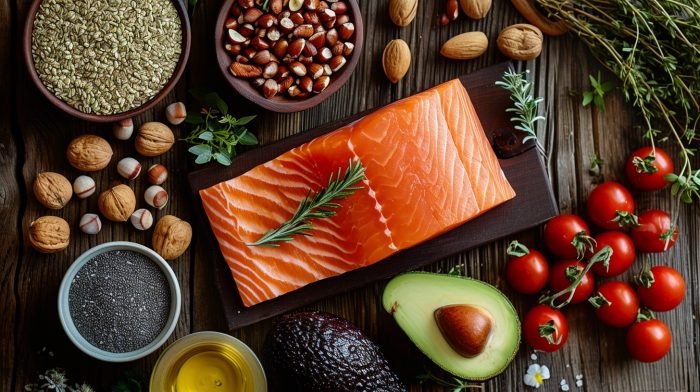Confinement foods are specially prepared meals that provide the necessary nutrients and warmth to help new mothers heal after giving birth. Confinement food is a term that describes the carefully prepared meals a new mother eats during her confinement period. The maternity healing period lasts for about a month after childbirth and is when the mother’s body is believed to be in its most vulnerable state. During that period, certain foods are thought to speed up postpartum healing and improve breast milk production.
Confinement Food: Nourishing New Mothers
The idea behind confinement meals comes from conventional Chinese medicine principles, where warming the body, improving blood circulation, and providing necessary nutrients are considered non-negotiable. The meals often include ingredients like sesame oil, rice wine, and fish soup, which are thought to aid quick recovery and forestall complications.

Why is Confinement Food Important?
The confinement period is a time of rest and healing. The foods eaten during that one month do the following:
- Promote wound healing after natural birth or a cesarean section.
- Rebuild the blood supply lost during giving birth.
- Boost the immune system to protect against infections.
- Support breast milk production for the baby’s nourishment.
- Maintain the mother’s energy levels and improve overall health.
When a mother eats the right confinement foods, she regains strength and experiences smoother recovery. That’s why a confinement diet is carefully crafted with ingredients that offer maximum nutrition.
The Science Behind Confinement Food
While the practice of eating confinement food is largely based on conventional Chinese medicine principles, modern science backs up some of the ideas. Eat a balanced diet rich in nutrients to aid your recovery from childbirth. A diet that includes lean meats, fish, fruits, vegetables, and herbs promotes tissue repair, improves the body’s immune response, and boosts milk supply.
Nutrition experts agree that the right combination of protein, healthy fats, and vitamins helps new mothers regain their strength. For example, protein-rich foods like fish and chicken support muscle repair, while vitamin-rich ingredients like red dates and papaya aid in immunity and breast milk production.
Key Ingredients in Confinement Foods

The key to a good confinement food menu is balancing nutrients while supporting postpartum recovery. Here are some common ingredients used in Chinese confinement meals and their benefits:
1. Sesame Oil
Sesame oil is a staple in many confinement meals. It is rich in healthy fats that reduce inflammation and support wound healing. The oil also keeps the body warm, which is a key concept in conventional Chinese medicine.
2. Red Dates
Red date tea is often consumed to replenish the blood supply and improve blood circulation. They are also packed with vitamin C, which boosts immunity and helps the body absorb more iron from foods.
3. Fish Soup
Fish soup is commonly included in confinement food because it is high in protein and promotes breast milk production. The fish is usually cooked with ginger, which is believed to warm the body and improve digestion.
4. Chinese Herbs
Many confinement meals include Chinese herbs, such as Dang Gui (Angelica root) or goji berries, which are thought to nourish the blood supply and boost the body’s natural healing processes.
5. Green Papaya
Green papaya is often used in soups or stir-fries and is known for its role in promoting breast milk production. It is also rich in vitamins and minerals that aid digestion and energy recovery.
Warming Foods: What They Are
In Chinese confinement practices, it’s believed that the body is in a cold state after giving birth. Therefore, the goal of confinement foods is to warm the body. Warming ingredients, like ginger and black vinegar, are commonly used in dishes for blood circulation and to restore warmth.
Cold or cooling foods, like raw fruits and cold drinks, are often avoided as they are thought to slow down recovery and negatively affect breast milk supply. It’s a deeply rooted belief in conventional Chinese medicine, and many new mothers follow the guidelines strictly for a smooth recovery.
How to Plan a Confinement Menu
If you’re planning a confinement food menu, variety and balance are key. You should include different types of protein, vegetables, and grains so that the mother gets all the nutrients she needs. Common dishes include:
- Ginger and chicken soup
- Steamed fish with sesame oil
- Stir-fried vegetables with red dates
- Black vinegar pork trotters (a popular dish in Chinese confinement meals)
- Fish soup with green papaya for improving milk production
Foods to Avoid During Confinement
While some foods are encouraged during the confinement period, others are best avoided:
- Spicy foods may cause digestive problems and irritate the stomach lining.
- Cold foods like raw salads or cold drinks are thought to slow recovery.
- Excessive caffeine intake might interfere with sleep and may affect the baby if passed through breast milk.
- Salty foods could lead to water retention and bloating.
The Impact of Confinement Foods on Breastfeeding
Many ingredients, like fish and papaya, are thought to increase breast milk production. The foods provide nutrients like omega-3 fatty acids and vitamins, which are passed on to the baby through the breast milk, improving the baby’s health as well.
Adopt Post Partum with Expert Guidance
Dr. Kristal Lau, a distinguished postpartum wellness coach stands out as one of the leading lights in postpartum care. With modern healthcare and conventional Chinese practices, Dr. Lau has helped countless mothers handle the unique challenges of postpartum life.

Through her work, she empowers new moms to nurture themselves with the right nutrition, support, and understanding, encouraging them to embrace each step with grace and confidence.
FAQs on Confinement Food: Questions You May Have
Are confinement foods vegetarian?
Yes, confinement meals may be tailored for vegetarian diets, incorporating plant-based proteins, Chinese herbs, and a variety of vegetables to meet nutritional needs.
Should fathers eat confinement food?
Absolutely! While designed for new mothers, confinement meals are packed with nutrients that benefit anyone, including fathers.
Is it okay to have snacks during the confinement period?
Snacks are a great way to maintain energy, but they should be healthy. Avoid salty foods or those high in empty calories.
How long should one follow a confinement diet?
Typically, the confinement period lasts for about 30 to 40 days, but some mothers may continue to follow certain practices longer based on their recovery needs.
What if I have allergies?
Communicate any allergies to your meal planner or catering service. They will adjust the meals accordingly to get you nutritious food without triggering any allergies.
